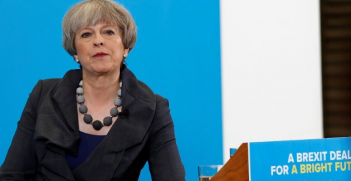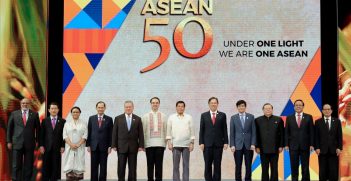Tobacco: Investor-State Claim Up in Smoke

The unanimous decision in Australia’s favour for the country’s first and only investor-state claim—related to tobacco plain packaging legislation—was published on 17 May and has important trade policy lessons for future international agreements. Meanwhile the plain packaging debate continues and Australia is still defending its measures against claims brought in the World Trade Organization.
Australia’s first investor-state claim was brought by Philip Morris as a result of Australia’s enactment of tobacco plain packaging legislation. When the decision was first issued by the specially convened international tribunal in December last year, it found that the claims brought by Philip Morris were an abuse of rights and beyond its jurisdiction. Although the case did not proceed to a merits phase, the recent publication of the decision shows that investment tribunals will not countenance claims that clearly subvert the purpose of the protections included in investment treaties
The Philip Morris claim was brought only after a failed legal challenge in the High Court by other tobacco companies to the constitutionality of the plain packaging legislation. The claimant Philip Morris Asia Limited (PMA) is a Hong Kong company and a part of Philip Morris International (PMI). It is also the sole shareholder of Philip Morris (Australia) Limited which is the sole shareholder of Philip Morris Limited, the group’s Australian trading arm. PMA brought a claim against Australia under the Agreement between the Government of Australia and the Government of Hong Kong for the Promotion and Protection of Investments 1993 (BIT), in respect of Australia’s introduction of legislation mandating the plain packaging of tobacco products. It was alleged the plain packaging measures expropriated PMA’s valuable intellectual property which had the effect of substantially diminishing the value of PMA’s investment in breach of the BIT. The three-person tribunal bifurcated the proceedings to first hear the jurisdictional objections. As Australia was successful in these objections, the case did not progress to a merits hearing.
The initiation of this investor-state arbitration sparked a political controversy in Australia about the inclusion of Investor-State Dispute Settlement (ISDS) provisions in bilateral investment treaties and free trade agreements (FTA). This controversy reached its high watermark with the introduction of two bills to the federal parliament. One aimed at preventing the executive from being able to agree to ISDS in subsequent treaties, and the other to introduce a requirement that both houses of parliament approve all treaties prior to ratification. Both bills were rejected.
Legal issues
The legal issues in the case were whether PMA properly became an investor for the purposes of the BIT by its acquisition of shares; whether PMA controlled the investment within the meaning of the BIT; whether the investment was admitted under Australian law and investment policies; and of most interest, the question of whether PMA’s claim related to a pre-existing dispute between the parties that fell outside the tribunal’s jurisdiction or otherwise constituted an abuse of right.
Tribunal’s findings
The tribunal found the investment was admitted for the purposes of the BIT but that PMA had failed to prove that it had exercised any significant management control with a substantial interest over the Australian subsidiaries prior to the restructure.
Australia argued that the abuse of rights resides in the manipulation of corporate nationality at a time when a dispute is in existence or is foreseeable to a sufficient degree; whereas PML argued for a higher threshold of making out bad faith for a finding of abuse of right. The tribunal found the legal test for abuse of rights is one of foreseeability, and that a dispute is foreseeable when there is a reasonable prospect that a measure which may give rise to a treaty claim will materialise.
The tribunal noted that it would not normally be an abuse of right to bring a BIT claim in the wake of a corporate restructuring if the restructuring was justified independently of the possibility of bringing such a claim. On the evidence, the tribunal found that the main and determinative, if not the sole, reason for restructuring was the intention to bring a claim under the treaty. Accordingly, the tribunal deemed the claims raised in the arbitration were an abuse of right, inadmissible and consequently beyond the jurisdiction of the tribunal.
Costs in the matter are reserved for a subsequent award and it will be interesting to see what the tribunal awards having found an abuse of rights. Australia is reported to have spent AU$50 million defending the claim.
Legal significance
This matter generated much international interest in the legal community. Following the award, PMI came out swinging, insisting that the decision did not test the efficacy of plain packaging measures on smoking rates or the merits of the case or on the question of whether the measures breached the investment protections in Article 6 of the BIT. Although these observations are correct, this was a helpful decision that further clarified and delineated both the bounds of jurisdiction of an investment tribunal under ISDS as well as the legal test for a finding of abuse of rights in investment restructuring cases. The foreseeability test upholds the intended balance between investor and sovereign, which underscores the purpose of investment treaties to protect bona fide foreign investments from unlawful government actions.
Policy lessons
The Hong Kong BIT was an early foray for Australia into BITs and did not contain specific carve-outs for public health or tobacco, as do more recent international agreements. The lesson here for governments is to take special care in treaty drafting and negotiation. The current Australian Government policy on ISDS in investment treaties and free trade agreements is to consider these on a case-by-case basis. Labor, however, has recently stated that it will remove ISDS from every trade agreement if elected.
In terms of the ongoing ISDS policy debate, Kurtz and Nottage have poked holes in the 2010 Productivity Commission Report’s findings on the use of ISDS on which the Gillard government’s policy of a blanket ban on ISDS in Australia’s negotiations was based. Similarly, Dr Patrick Carvahlo of the Centre for Independent Studies has recently published a research report on ISDS and Rule of Law that debunks common arguments against the use of ISDS and makes a compelling case for the carefully considered inclusion of ISDS provisions in Australia’s treaty arrangements.
The inclusion of ISDS provisions will often depend on the relative bargaining power of negotiating parties and has to be balanced with other benefits flowing from the entire agreement. Decisions may also be influenced by whether the counterparty is a developed or developing economy and whether the parties are covered by other bilateral or multilateral agreements which already include ISDS. As at the start of 2016, there were 3509 ISDS provisions agreements globally.
Meanwhile, the tobacco controversy continues—Australia is still defending four claims with one more suspended for settlement negotiations in relation to its plain packaging measures in the WTO. A record number of states have indicated they will join the disputes as third parties.
Marina Kofman is a lawyer specialising in international law and international arbitration. She is the dispute resolution case manager at the Australian Centre for International Commercial Arbitration and the vice chair of the NSW Young Lawyers International Law Committee. This article is published under a Creative Commons Licence and may be republished with attribution.





